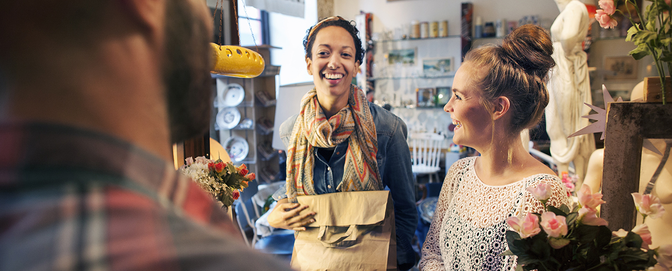
UX researcher interview questions

UX researchers are the bridge between user needs and product design. Throughout the product design process, UX researchers help align user’s insights with the broader objectives of the organizations. Balancing the demands of user needs, business goals, thorough research, all while meeting tight deadlines, makes the role of a UX researcher both crucial and challenging to fill.
Hiring the right UX researcher is essential for creating products that truly resonate with users. In this blog, we explain what a UX researcher does and then unveil the key criteria to consider—and the key questions to ask during interviews—when hiring one at your organization.
Why are UX researchers important?
In today’s marketplace, customers value and expect a great experience with little to no friction. UX research helps designers understand and predict how users will interact with products and services. They act as an advocate for the user.
Throughout the product development process, UX researchers ensure that products are not just functional but also enjoyable to use. Through quantitative research such as surveys, and qualitative research like in-depth interviews, UX researchers translate user data into actionable insights that align with business strategies. Their work ultimately reduces the need for redesign, boosts user engagement, and provides a competitive edge in the market.
What does a UX researcher do?
A UX researcher is responsible for understanding user behaviors, needs, and motivations through various research methods. They analyze qualitative and quantitative data to uncover insights that guide product design and development.
By designing and conducting user studies, creating personas, and scaling actionable insights across the organization, they ensure that user feedback is integrated into every stage of the product development process. This close collaboration with designers, product managers, stakeholders and developers helps create intuitive, user-friendly products.
What characteristics and skills should you look for in a UX researcher?
Finding the ideal candidate can be challenging due to the distinctive blend of skills and qualities that define great UX researchers.
A strong UX researcher must be empathetic, analytically sharp, and deeply curious about user behavior. They need to be methodical in their research approach, yet flexible enough to adapt to changing project demands. Experience in a specific industry or familiarity with certain research tools can also be crucial, depending on the role.
A very important skill for UX researchers is the ability to effectively communicate. You want someone who can scale complex insights across the organization effectively. Both technical and non-technical teams must have an understanding of UX insights in order to bridge the gap between user needs and product goals.
UX researcher interview questions
Interview questions about UX research
- How would you describe the purpose of UX research in a corporate setting?
- How do you approach gathering user feedback in different contexts?
- Describe a project where your research significantly impacted the final design.
- Can you walk us through your process of creating a user persona?
- Explain a situation where you had to balance conflicting user needs.
- What would your advice be to a UX researcher just starting out?
- What is your favorite part of being a UX researcher? Why?
- What is your least favorite part of being a UX researcher? Why?
- What would excite you most about becoming a UX researcher?
- What UX methods are you experienced in? Do you have any favorites?
- What aspect of UX Research is more challenging: starting a project (Identifying Research Questions and goals) or ending a project (presenting findings and deciding next steps)?
- Describe a research project you worked on, for example what method did you use, how long did it take and what did you learn in the end?
- How do you ensure your research has value?
- Give an example of a time when you had to convince a team to change a design based on your research.
Interview questions about data and analytics
- What methods do you use for qualitative vs. quantitative research?
- How do you decide which research method to use for a particular project?
- How do you analyze and prioritize the data collected from user research?
- What tools or software have you used for analyzing research data?
- Can you share an example of a time when your data analysis led to an unexpected insight? How did you act on it?
- How do you ensure the accuracy and reliability of the data you collect?
Interview questions about communication and collaboration
- If your leader asked you to explain what research democratization is and describe the pros and cons, what would you say?
- If you were presenting results from a qualitative research study and a stakeholder questioned your sample size, how would you respond?
- How do you present your research findings to non-research stakeholders?
- How do you ensure that user insights are integrated throughout the design process?
- How do you communicate the value of your research across the organization?
- How do you ensure that your research findings are actionable for the design and development teams?
- How have you handled working with difficult stakeholders in the past?
Interview questions about adaptability
- Tell me about a time when the results of your research conflicted with the desires of a senior stakeholder. How did you handle that? What was the outcome?
- Tell us about a time when your research uncovered unexpected user behavior. How did you handle it?
- Describe a time when you had to adapt your research approach due to constraints (time, budget, etc.).
- How do you take feedback constructively, even if it isn’t presented in a way you're used to?
- Describe a time when you had to adjust your research approach due to unexpected challenges. How did you handle it?
- How do you stay updated with the latest trends and changes in UX research methodologies?
- Can you share an example of a project where you had to quickly adapt to new information or a change in direction?
- How do you manage shifting priorities or changing project scopes?
Basic interview questions
- Why do you want to work here?
- Why should we hire you?
- How would you describe our [name] product to someone?
- How would you improve our product within the next six months?
- How do you think we determined the price for [your product name]?
- Who are our competitors? Which one do you believe poses the biggest, immediate threat to our business? Why?
- What’s one major challenge you believe our company will face in the next two years?
- We also have a B2B division in addition to our consumer offering. How would you balance the product needs of both markets?
- What will you do in the first 90 days if we hire you?
- What’s one of the best ideas you’ve ever had? And the worst?
- What do you need from your manager to be successful?
- What do you like to do in your spare time?
- Where do you see yourself in five years?

Get actionable insights today
Uncover human insights that make an impact. Book a meeting with our Sales team today to learn more.





